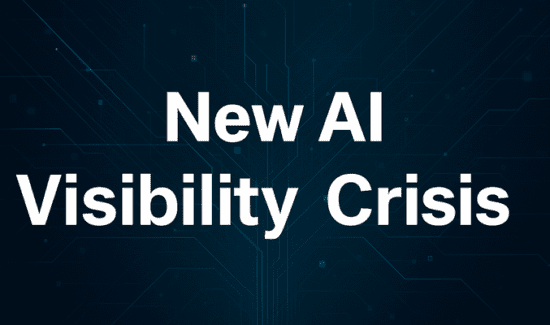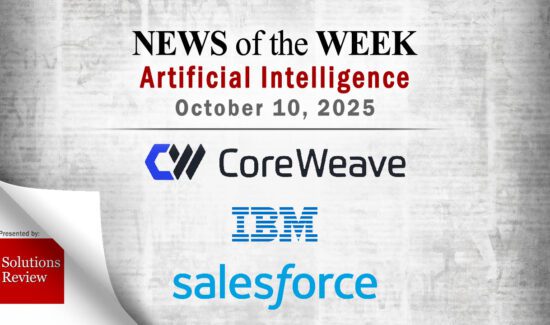5 Tips to Assess if Your Company is AI-Ready

OGx Consulting’s Alvin McBorrough offers insights and tips to assess whether your company is AI-ready. This article originally appeared on Solutions Review’s Insight Jam, an enterprise IT community enabling the human conversation on AI.
Artificial intelligence (AI) offers immense potential for businesses of all sizes. However, the journey to successfully integrating AI requires careful preparation and a deep understanding of your organization’s capabilities. It is crucial to assess your AI readiness before diving headfirst into this exciting new frontier.
There are five key areas to evaluate when determining if your company is truly AI-ready: goals and strategic alignment, data quality, team member skills, workplace culture and AI ethics. For companies seeking to leverage cutting-edge AI for strategic planning, the Harvard Business Review article “How CEOs Are Using Gen AI for Strategic Planning” offers valuable insights and real-world case studies.
By addressing these considerations, you can create a solid foundation for a successful AI implementation and unlock the vast benefits this technology has to offer.
1. Define Your AI Goals and Assess Strategic Alignment
Before embarking on any AI project, it’s critical to define clear and measurable goals. What specific challenges are you looking to address with AI? How will AI integration contribute to your overall business strategy?
A well-defined roadmap ensures your AI efforts don’t become isolated endeavors or technology showcases. Instead, your AI initiatives should integrate seamlessly with your existing processes and goals. This alignment fosters strong executive buy-in and ensures resources are allocated effectively to achieve your desired outcomes.
Imagine a public transit agency aiming to improve passenger satisfaction and reduce operational costs. Using AI, they can optimize bus routes, predict maintenance needs and implement predictive analytics for demand forecasting. These AI applications directly align with the agency’s goal of providing reliable and efficient public transportation services.
2. Evaluate Your Data Infrastructure: Quality Matters
AI thrives on data. The quality and quantity of data you possess directly impact the effectiveness of your AI models. Here’s what to assess:
- Data Volume: Is your data volume sufficient to train and test AI models effectively? Insufficient data can lead to inaccurate models and unreliable results.
- Data Variety: Does your data encompass various sources and formats (structured, unstructured, etc.)? AI models benefit from diverse data sets for comprehensive learning.
- Data Quality: Is your data clean, accurate and free of errors? Dirty data will lead to biased AI models and inaccurate outcomes.
Effective AI usage requires investing in a robust data infrastructure. This includes data cleaning tools, data governance frameworks and secure data storage solutions. Industry reports like OGx Consulting’s “AI Impacting the Public Sector” highlight the importance of data security and governance in an AI-driven world.
3. Assess Your Talent Pool: Do You Have the Right Skills in Place?
AI integration demands a unique skillset. Developing, implementing and managing AI models requires data scientists, machine learning engineers and AI analysts. Additionally, specialized experts such as business analysts who understand how AI can be integrated into existing workflows and change management specialists can ensure a smooth transition for the workforce.
Evaluate your current talent pool. Do you have the necessary internal expertise, or will you need to invest in additional resources, either through hiring or training? Consider partnering with AI consultancies that can provide expertise and bridge any skill gaps within your organization.
4. Foster a Culture of Innovation and Experimentation
AI implementation is an iterative process. Encourage a culture of experimentation and embrace the concept of “failing fast and learning faster.” Not all AI pilots will be successful, and that’s okay. These early efforts provide valuable insights that can inform further refinements and lead to optimal solutions.
Building a culture of innovation requires breaking down silos and prioritizing collaboration across departments. Create opportunities for teams to share ideas and learn from one another. Additionally, leadership buy-in plays a crucial role. When leaders set an example of embracing new ideas and fostering a risk-tolerant environment, the entire organization benefits.
5. Consider the Legal and Ethical Implications of AI
AI applications raise important legal and ethical concerns. Teams must develop a comprehensive AI risk management strategy. The Stanford University Artificial Intelligence Index Report (AI Index Report) offers valuable best practices for assessing and mitigating risks associated with AI implementation.
Below are key areas to consider:
- Data Privacy: Ensuring compliance with data privacy regulations (e.g., GDPR, CCPA) is paramount.
- Algorithmic Bias: Regularly audit AI models for potential bias that could lead to discriminatory outcomes. Develop strategies to mitigate bias and promote fairness in your AI-driven decisions.
- Transparency and Explainability: Can you explain the logic behind your AI models? Understanding how the models reach their conclusions is necessary for building trust and ensuring responsible AI development.
By incorporating these five key considerations, you can assess your company’s AI readiness and chart a course for successful AI integration. Remember, AI is a powerful tool, but like any tool, its effectiveness hinges on careful planning, a strong data foundation and the right skills, culture and leadership.
Take Your AI Readiness to the Next Level
An AI Readiness Assessment can provide a comprehensive evaluation of your organization’s current AI preparedness. You’ll want to walk away from your assessment with these outcomes:
- ROI Opportunities: Pinpointed areas where AI can deliver the most significant value for your business.
- Analyzed Data Infrastructure: How and where your data will meet the quality and accessibility standards required for effective AI models.
- Assessed Feasibility: An evaluation of whether AI implementation is currently achievable with your existing technology, data resources and personnel.
- Priorities Based on Effort and ROI: Top AI projects that are both high-impact and feasible, with the potential for a strong return on investment.
- Identified Skill Gaps: An understanding of the necessary technical and strategic skills needed for your AI initiatives, and addressing any gaps through training or hiring.
By taking a survey to understand your AI readiness maturity, and addressing these key areas, you can gain valuable insights and develop a roadmap to begin your AI journey in confidence.



